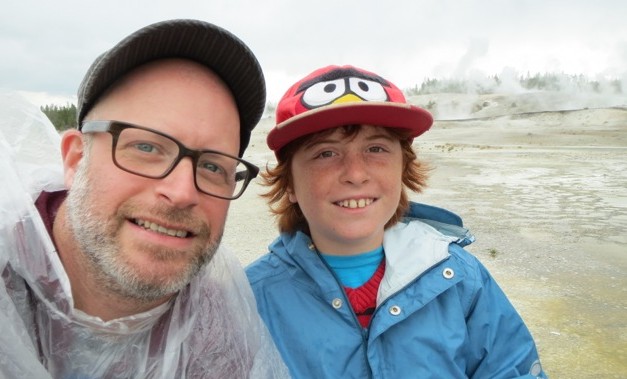
Why You Should Sometimes Take Things For Granted
If you were lucky, you got through your childhood with no major traumas, except for the odd domestic here and there.
If you were one of these lucky people, your childhood was a time of taking things for granted; that your life was safe; that your parents were alive (and were going to stay that way forever); and that your home provided everything you needed. This is likely to have provided you with a sense of abundance and safety. On balance, everything was probably going to be okay.
If you are less lucky, your levels of resilience influence how secure and abundant or insecure and “scarce" you might feel. You may be a person who has learned to take nothing for granted, where every potential to be happy is at risk. Alternatively, like most people who are somewhere between lucky and unlucky, you will have periods of trusting the world and other periods in which you experience doubt and fear. Nevertheless, existentially, there are no guarantees - therefore it's how we meet this reality that counts. Fortunately, you can learn to be resilient no matter how lucky or unlucky your childhood was.
My luck ran out when I was 14 and my father was diagnosed with terminal cancer
My luck ran out when I was 14 and my father was diagnosed with terminal cancer - he died about a year later. It's a tough lesson for a kid to see death so close to home. My response was to not take things for granted anymore. The impermanence of the world was too plain for me to see. The general concerns of 15-year-olds were thrown into stark relief when I learned to distinguish what was important from what was not, and my life and the lives of others struck me as pretty darn important. In my quest to not take things for granted, I started to take things way too seriously – holding on to moments, knowing they were so at risk.
While, the recent craze of mindfulness has much to teach us in a culture that is so rushed, so relentlessly connected, and so demanding of our divided attentions; there is, nevertheless, the danger that we take it too seriously. We can get into such an extreme state of “being present" that we can find that we're not so present anymore. When “being present" becomes the focus of attention, it is at the paradoxical expense of not actually being present at all – just so we don't take things for granted!
At 15 I learned not to take anything for granted, and now at 41, I've learned that sometimes this is the very best thing you can do
So at 15 I learned not to take anything for granted, and now at 41, I've learned that sometimes taking things for granted is the very best thing you can do. This lesson came from a recent trip with my 11-year-old nephew to Yellowstone National Park. Living in separate countries, I see him very rarely, and kids grow up so fast. I was determined to be present for every single moment with him – to let it all soak in because I knew that in a flash this would be a distant memory that we would reflect upon some day over a pint of ale. So I tried to be mindful, I reminded myself where I was in the car on the way up; as we watched the fabled buffalo roam (I'm informed by the 11-year-old that they are in fact bison); I was studiously present for each puffing blast of Old Faithful Geyser's glorious regurgitations. And then I realised something. He was just there enjoying it and I was just there being earnest. By wilfully being mindful, I was removing myself from the experience.
What was so painful about losing my father was that I had taken him for granted and now I no longer could. But I'm glad I did, because it means I was just there with him when he was alive. When we are fully present, these things are granted to us, so we should take them as so. Of course my nephew will grow, and indeed by the time we share that ale, I'll be somewhat arthritic. But Yellowstone was gifted to us nonetheless – I will have really been there, taking it for granted and I feel grateful for that.
Why not allow ourselves to enjoy those wonderful moments of taking our lives, our experiences, and especially our relationships for granted
But let's not dispense with mindfulness: to be aware, and present, and be able to say to yourself, “here I am, right now, with this person, and loving it!" is an essential realisation. To remain focused on the local experience rather than the past or the future enhances your present. But to reside in that slightly removed space is to deny the entirety of that experience. Instead, simply note it, be grateful for it, and get on with it. To do otherwise is equivalent to watching a gig through an i-phone: one step removed.
As we grow older, the world can look more and more unstable and existentially risky (because it is). So why not allow ourselves to enjoy those wonderful moments of taking our lives, our experiences, and especially our relationships for granted - in order to get a peek of that lucky childhood experience once more, and be grateful.










